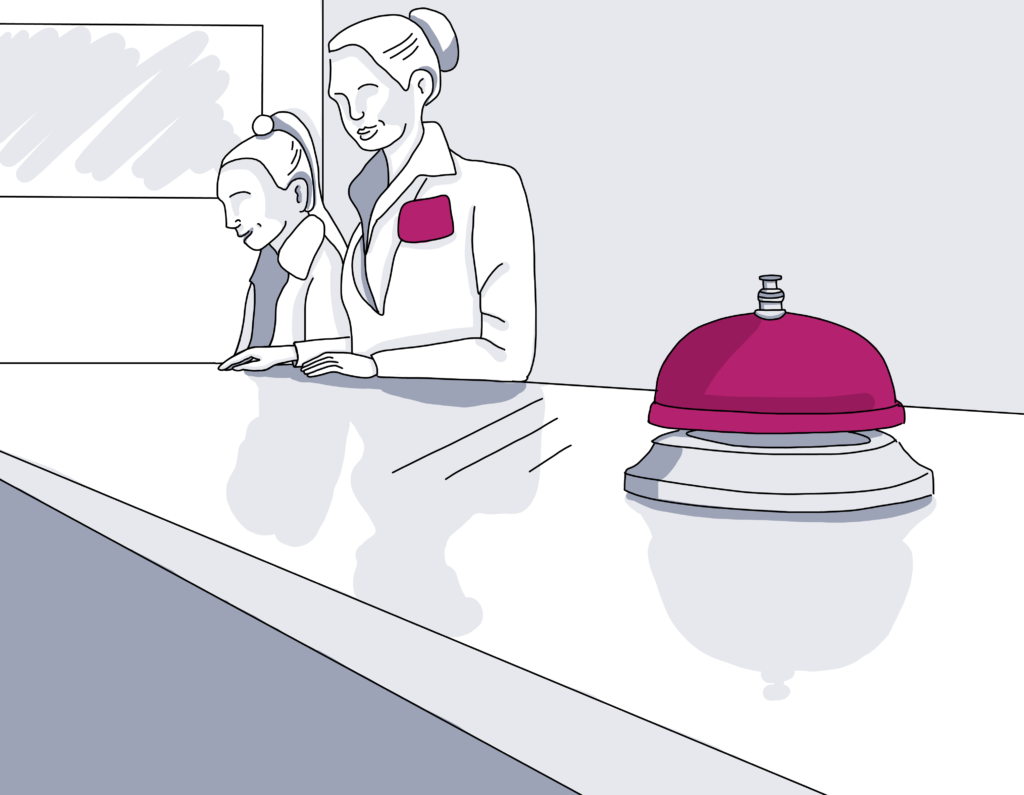
Tech Thursday: 6 Ways to Help Your Sales Team Actually Use Your New Hotel CRM
CRM adoption is a common hurdle for sales teams, in hotel management companies and a wide variety of businesses and markets. Across industries, an estimated one-third of CRM projects fall short of expectations. Why? There are many possible explanations, but these are among the top reasons your team may be slow to use the CRM:
- ˜We’ve always done it this way’ syndrome. CRMs require a shift in the work habits and daily routine of your hotel sales team.
- Worries the CRM is a waste of time. Your sales team may worry data input takes too long and takes them away from doing the most important part of their job”making sales.
- Concern the CRM is a micromanagement tool in disguise. Sales team managers must review CRM activity, but the goal is finding opportunities to support team members, boost sales, and improve customer relationships, rather than micromanagement.
Addressing these concerns is the key to getting your sales team on board and boosting hotel group sales.
Follow these 6 best practices for CRM adoption to set your team up for success.

1. Keep the decision-making and timeline transparent
Don’t surprise your sales teams with new CRM software. Instead, involve them in the process before you even choose the CRM. Let them know through a company-wide email or kick-off meeting (and not through the workplace grapevine) that management is exploring CRMs, and asking for input. You likely have in-house sales representatives experienced with various CRMs who can discuss their distinct pros and cons.
Also, offer an estimated timeline for selecting the CRM, rolling it out, and software training. Sales reps appreciate the opportunity to research a CRM, explore the benefits on their own time, and adjust to the idea. Expect some wariness”it comes with the territory of change”but transparency can go a long way to helping your team embrace the new software. Indeed, transparency improves employee engagement and happiness, which in turn boosts productivity and business outcomes.
2. Improve CRM user adoption with an intuitive and easy platform
Members of your sales team are experts in sales, not tech. Your CRM software must be quick to onboard, simple to navigate, and easy to use. You don’t want your sales team wasting valuable time logging information rather than making sales calls or meeting prospective clients for on-site visits.
What to look for in a sales-supportive hotel CRM:
- Simple user experience (UX). All of the valuable tools and tasks should be easy to reach from a clean homepage.
- Streamlined processes. Overloading users with choices and options is sure to result in low CRM adoption rates.
- Data input flexibility. Don’t bog your sales team down with a CRM that demands every field is filled when adding new contacts, lead details, or updating accounts. Often, information is gathered as the lead is developed”rushing this will frustrate sales team members and could even lose group business.
- Actionable reporting. From pace reporting on changes in group sales growth to Win/Loss reports outlining the reasons accounts were gained and lost, hotel CRM reports should help guide sales strategies and win business.
- Make it mobile. Your sales representatives are often busy traveling between hotel properties for on-site visits with returning and prospective clients. The CRM must be mobile-friendly so reps can update information on the spot and focus on most of their time on sales.
3. Clarify the value of using the hotel CRM
A 2013 study by MIT Sloan Management Review and Capgemini Consulting found that 63 percent of manager respondents across industries thought the pace of technology change in their organization is too slow and the most frequent obstacle was a lack of urgency.
The same study found that 93 percent of employees felt digital transformation was right for their organization when the CEO supported that transformation.
People across your hotel management company must support daily use of the CRM”from the CEO to every member of your sales team. In essence, you must ˜market’ the CRM so users understand why it is a more beneficial tool than their current system of spreadsheets and notebooks. The message should be simple and clarify the benefits of hotel CRMs, such as the ability to:
- Access up-to-date room block and event space availability that prevents double bookings.
- Automate contracts and BEOs. Quick response times are essential to growing and keeping group business.
- Save detailed customer data that supports personalization and repeat business.
- Generate key sales reports that pinpoint group booking strengths and weaknesses across properties.
- Produce sales reports that pinpoint team members who may need further training.
- Schedule follow-ups and reminders.
When your entire team understands the CRM addresses common frustrations and communication failures, and will help them stay organized and on-track for improved sales”adoption is more likely.

4. Help the sales team build new habits
Following the onboarding period, reward daily use of the CRM with authentic appreciation and monetary perks. Research shows that establishing new habits (and breaking old ones in the process) takes anywhere from two months to 254 days. Perks push representatives to swap processes during the rollout so there’s little task replication and valuable data stays current and accessible. One possible perk structure: A $25 coffee shop gift card after one week of daily use and a $100 gift card to a popular restaurant after two months of regular use.
Finally, rolling out a new CRM and failing to follow up with sales representatives is a recipe for failure. Sales managers must check in with sales representatives across the portfolio about challenges, and use the data themselves to drive business early in the rollout to demonstrate its real-world value to the team.
5. Offer customized training and expect some bumps
The best CRMs are easy to learn and implement, and they include comprehensive training that accounts for people with different learning styles. Make sure the software’s training offers options for visual learners, online training modules, one-on-one video conferencing, and in-person training. On-demand software and training support is also essential for when new users hit bumps, so their sales activities stay on track.
Establish a tech-savvy point person for every sales team across your portfolio”there’s usually at least one! This is the person who gets up to speed fast on all the bells and whistles of any new technology. In addition to helping coworkers past minor snags, their interest and excitement in the technology can energize the whole team. Make it clear that questions are always welcome and preferred to time lost ˜going it alone’.
6. Discuss CRM reports and data with team members
Use it or lose it. You’ve helped your sales team establish the habit of using the CRM daily”for customer information, lead updates, follow-ups, site visits, and other essential tasks. If sales managers don’t use the information to help grow group business, sales reps will question the value of spending time on the CRM, rather than on phone calls or meetings with prospects.
Keep the CRM front and center by tracking where leads are in the sales funnel, so sales team managers can help reps finalize contracts. Empower non-sales teams with essential information about incoming groups and events that helps them prepare and improves customer service. Use Win/Loss and Pace reports to highlight underperforming areas, such as unused event spaces at specific properties, or the sudden loss of repeat group business from a local university. This knowledge can guide targeted marketing outreach and smart CapEx spend, which boosts group business”a win across the board.
Follow the above tips and your sales team is more likely to adopt your CRM with an open mind from onboarding through daily use. With the resulting streamlined processes, reports, and collaborative tools, you’ll improve lead generation and repeat business”and your team will wonder how they ever did the job before go-live.
Ready to see how easy it is to launch a new CRM software? Request a free demo of Social Tables’ streamlined and user-friendly sales and catering CRM software! Or, learn how to elevate the ROI of on-site utilities at hotels across your portfolio.

